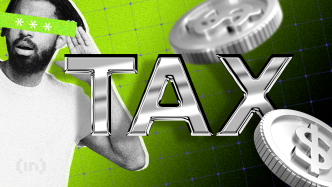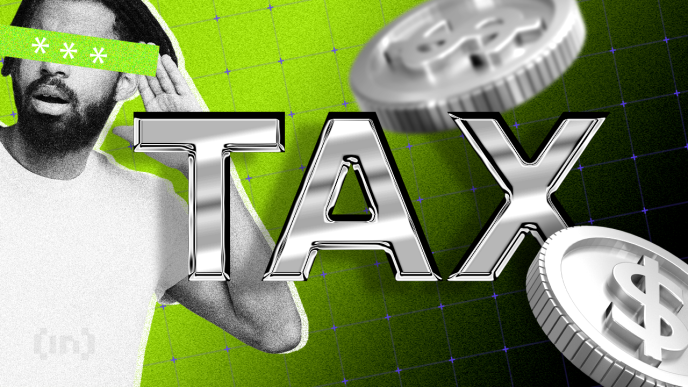As the Securities and Exchange Commission’s five voting members sat before lawmakers on Capitol Hill in September, House Financial Services Committee Chair Patrick McHenry (R-NC) pressed the agency’s head about a supposed lack of regulatory clarity regarding crypto.
“The laws are clear, and it’s written by the Supreme Court,” SEC Chair Gary Gensler began to say before McHenry cut him off—turning to Gensler’s Republican-appointed colleague, SEC Commissioner Hester Peirce, to ask about the agency’s stance on crypto regulation again.
“We’ve taken a legally imprecise view to mask the lack of regulatory clarity,” Peirce responded, with Gensler just a few feet away. “It’s always helpful to have Congress weigh in, but there certainly are some guidelines we could provide in this area that we have chosen not to.”
The exchange lasted minutes, but it underscored years-long tension over the SEC’s regulatory approach to crypto. It also highlighted a partisan divide within the agency over whether broad swathes of the crypto industry fall under its remit, requiring digital asset firms to abide by the agency’s decades-old rules relating to securities.
Gensler, who once said that “everything but Bitcoin” falls under the agency’s purview, served as a political cudgel this year, even as President-elect Donald Trump curried favor with the crypto industry. Nonetheless, Wall Street’s top cop leaned into the agency’s enforcement blitz, ticketing crypto firms for allegedly violating its rules while putting several others on notice.
Gensler, who was appointed by President Biden to lead the SEC, indicated last month that his tenure was ending. He signaled he’d leave when Trump begins his second term on January 20, 2025.
Trump, delivering on one of his crypto-related campaign promises, has appointed former SEC commissioner Paul Atkins to replace Gensler.
“I would expect Paul Atkins to have a completely different approach,” Stephanie Avakian, a partner at WilmerHale, who formerly served as director of the SEC’s Division of Enforcement, told Decrypt. “He is both experienced and practical and is well-known.”
Crypto advocates may be excited about the prospect of Atkins’ leadership, but it remains to be seen where the nominee could take existing lawsuits against crypto companies like Binance, Coinbase, Ripple Labs.
Anthony Tu-Sekine, a partner at Seward & Kissel, told Decrypt the SEC could face reputational harm if it quickly abandoned the high-profile cases after pressing forward with them and expending resources.
“The SEC is more like a supertanker than a race boat,” Tu-Sekine said. “Don’t expect Atkins to become chairman and come out two days later and say we’re dropping all those cases. The staff has worked diligently on these cases, came to a conclusion about the law, and ultimately ended up convincing the higher-ups that a suit should be brought,” he said.
Capitol Hill
When Gensler was nominated to lead the SEC in 2021, industry participants were cautiously optimistic. However, Gensler’s experience teaching a class on blockchain at MIT did not lead to clearer “rules of the road,” as some had hoped.
In maintaining that existing laws were sufficient to regulate digital assets, he emerged as an industry antagonist. An aggressive string of crypto-related enforcement actions meanwhile heightened advocates’ concerns that the agency’s approach was overzealous.
Reflecting on his tenure as SEC Chair in November, Gensler stood by the agency’s focus on fostering compliance with securities laws in the crypto market. Having drawn comparisons to the “Wild West” before, the sheriff hitched his agency’s approach to protecting investors.
“This is a field in which over the years there has been significant investor harm,” Gensler said. “Further, aside from speculative investing and possible use for illicit activities, the vast majority of crypto assets have yet to prove out sustainable use cases.”
That same day, 18 states filed a lawsuit against the SEC, alleging that the regulator’s enforcement-based gambit violated the law. Brought by Republican attorney generals and the DeFi Education Fund, the accusations of regulatory overreach highlighted a sense of political angst that the President-elect had seized on months before.
“I will fire Gary Gensler on day one,” Trump vowed at a Bitcoin conference in July. “The day I take the oath of office, Joe Biden and Kamala Harris’ anti-crypto crusade will be over.”
Gensler’s leadership was scrutinized time and again by Republican lawmakers on Capitol Hill, but the sentiment that existing laws were good enough received bipartisan pushback this year. As 71 Democrats in the House of Representatives voted in favor of a crypto market structure bill in May alongside Republicans, they signaled the status quo needed some form of overhaul.
Both chambers of Congress also passed a bill that would have repealed SAB 121, SEC guidance requiring banks to recognize digital assets as liabilities on their balance sheets. After President Biden vetoed the bill, House members failed to override it. However, 21 Democrats showed opposition to Biden’s veto, so there was bipartisan support there, too.
The crypto industry’s unprecedented political spending efforts in 2024 likely contributed to lawmakers’ performance. The Democratic presidential nominee, Kamala Harris, later distanced herself from the SEC’s approach, advocating for a regulatory framework as Election Day approached, but by that time, it was too late.
As Vice President Harris rose to the top of the Democratic ticket, Rep. Wiley Nickel (D-NC) previously told Decrypt that there were signs the presidential nominee would take a “balanced approach” to crypto. Mark Cuban threw his hat into the ring as a potential successor to Gensler, but the billionaire’s ambitions of leading the agency ultimately fell short.
‘Not great for entrepreneurs’
Even though the SEC faced several setbacks in court, the Commission had a banner year in terms of the amount of cash that enforcement actions brought in. Meanwhile, the agency pushed forward with high-profile lawsuits, tuning out the political heat that Gensler faced.
In fiscal year 2024, the SEC secured $8.2 billion in penalties across 583 enforcement actions affecting U.S. capital markets. Of that sum, $4.5 billion came from a lawsuit against Terraform Labs and its founder, Do Kwon. They were found liable for civil fraud charges related to the $40 billion collapse of UST and LUNA in 2022.
The lawsuit marked a major victory for the SEC, as a federal judge determined that Kwon and Terraform Labs had offered LUNA and UST to investors as securities. However, the SEC encountered a significant setback in the Southern District of New York, where the case was filed.
After finding that XRP, a token stewarded by Ripple Labs, was not “necessarily a security on its face,” a federal judge ordered Ripple to pay $125 million in fines for XRP transactions that did violate the law. The SEC later appealed the ruling, but it had sought $2 billion in civil penalties after bringing the case in 2020—before Gensler came to lead the agency.
“Charitably, the SEC got a bloody nose,” Tu-Sekine said.
Still, the SEC was able to hold on to lawsuits against Binance and Coinbase. Last year, the regulator alleged that both firms violated its rules, allegedly operating as unregistered exchanges, broker-dealers, and clearing agencies, among other accusations.
In March, a federal judge found that arguments alleging Coinbase offers investors unregistered securities were plausible, denying most of the company’s motion to dismiss. In June, a federal judge ruled that the SEC’s case against Binance could also proceed, while charges related to the leading crypto exchange’s Simple Earn product and certain token sales were dismissed.
Those lawsuits, along with one against crypto exchange Kraken, are ongoing. The legal costs associated with crypto-related enforcement actions are increasing, according to the Blockchain Association, an advocacy group that estimated the figure to be at least $400 million, using self-reported data from its member companies.
“While that creates a lot of work for lawyers, it is not great for entrepreneurs,” CEO Kristin Smith told Decrypt. “In terms of whether their projects comply with the U.S. securities laws, they have to read between the lines of various court opinions and briefs that the SEC submits.”
Some lawsuits initiated last year came back to bite the SEC, namely the Commission’s case against DEBT Box, a crypto mining firm. In August 2023, SEC attorneys attained an ex parte restraining order against the firm, freezing DEBT Box’s assets before it could argue otherwise.
In May, the case was dismissed as a federal judge ordered the SEC to pay $1.8 million for DEBT Box’s legal fees. The regulator had made “false and misleading statements” in attaining the restraining order, Utah District Court Judge Robert Shelby found. A week later, the SEC closed its regional office that had brought the case, citing “significant attrition.”
Enforcement threats
Minutes after Gensler signaled his resignation in November, a federal judge in Texas dealt the agency another blow. By expanding the definition of “dealer,” the SEC would’ve forced decentralized finance projects to register as securities exchanges and brokers. But the court found that measure was unlawful, ordering the SEC to axe the modifications in question.
While the SEC has focused on crypto exchanges and digital asset issuers under Gensler’s leadership, the Commission’s scope expanded this year in terms of enforcement threats. Issuing Wells Notices, the SEC warned firms a lawsuit could be coming in areas previously untouched, such as decentralized finance (Uniswap Labs), NFTs (OpenSea), and gaming (Immutable).
Additionally, the Commission issued enforcement warnings to companies such as the trading app Robinhood, examining its cryptocurrency offerings after the firm tried to “register” its services with the agency, which Gensler had urged digital asset firms to pursue earlier.
“This is not the way Americans expect our government to work,” Robinhood’s legal chief and former SEC commissioner Dan Gallagher later testified before Congress. “Rather than issue rules to provide regulatory certainty to an industry craving it, the SEC has instead targeted individual firms, including Robinhood, through regulation by enforcement.”
Ultimately, Gensler’s leadership had “an immense chilling effect” on the crypto industry, Katherine Snow, general counsel at Thesis, a venture capital firm, told Decrypt. Either forcing companies to axe projects or move overseas, she said the U.S. will have to pick up the pace to compete with regulatory progress on crypto made internationally.
However, Snow saw one noticeable drawback with Gensler’s slated departure. Over the past several years, legal minds across the industry have been united in fighting what was perceived as an existential threat.
“Because we had this common enemy, everyone was able to really rally behind each other,” Snow said. “It’s going to be pretty fascinating to see what the approaches are of the various trade associations over the coming months and years, as we approach this new SEC.”
Edited by Sebastian Sinclair
Daily Debrief Newsletter
Start every day with the top news stories right now, plus original features, a podcast, videos and more.
Source link
André Beganski
https://decrypt.co/296394/year-in-crypto-gary-gone-wild
2024-12-27 21:01:02














